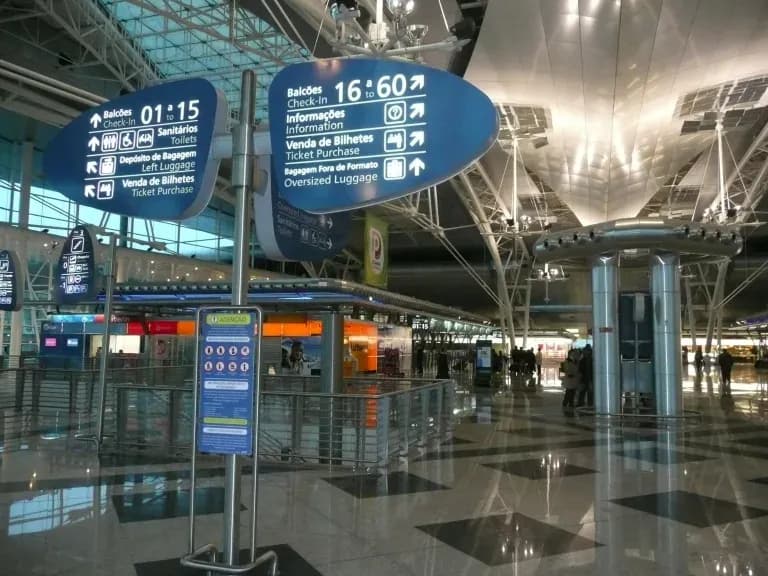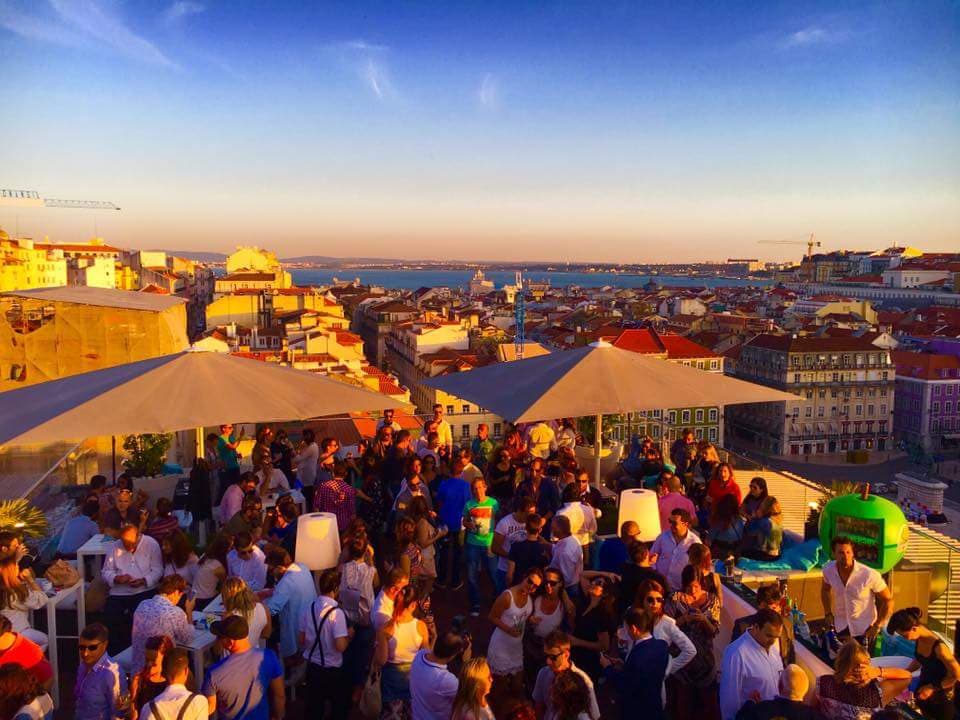
Every year, millions of visitors discover Lisbon, Porto, the Algarve or even the Azores. Portugal is a warm, affordable country, famous for the kindness of its people. But even in the land of pastéis de nata, a few clever tricksters lurk around. Yes, just like in any popular destination, a few little scams still wander between the cobblestones.
That’s exactly why we wanted to share our experiences (lived and verified) in Portugal. This handy guide will help you spot the most common traps, with local tips and a few juicy anecdotes along the way.
Taxis and Ride-Shares: Watch Out for Long Rides
In big cities like Lisbon or Porto, some taxi drivers take advantage of tourists not knowing the city well. They might add a scenic detour (sometimes quite literally !) to inflate the fare, or claim that the meter is “broken.”
To avoid turning a short ride into a pricey misadventure, go for ride-share apps like Uber, Bolt or Free Now. These apps show the price in advance and let you track the route in real time (very handy, especially if you don’t speak Portuguese). If you prefer an official taxi (green and black, hard to miss), just make sure the meter is on when you start the trip and ask for an estimate beforehand, that way, you can ride stress-free.
A little anecdote (experienced by a friend, I can confirm !) : freshly landed in Lisbon, she paid €35 for a ride to the city centre… while an Uber would have cost around €12 (almost three times less!). A classic airport scam, easy to avoid once you know the normal rate.

“Tourist-Trap” Restaurants
Ah, those bustling restaurant streets… Rua Augusta in Lisbon, Ribeira in Porto, or the seafronts of the Algarve. The menus look tempting, the servers are friendly, but beware : the bill can suddenly climb without warning.
The classic move ? Those little starters placed on the table (bread, cheese, olives) that appear uninvited. Once upon a time, they were complimentary (and that was lovely), but now they’re charged between €2 and €5 per person.
My advice: if you don’t want to pay for them, politely refuse at the start or simply leave them untouched. And before you pay, always take a quick look at the receipt, sometimes an unexpected extra sneaks its way in.
For a more authentic experience, head to a tasca, one of those small family-run restaurants often hidden in side streets. You can enjoy bacalhau or homemade soup for under €10, in a simple and genuine atmosphere (the real Portugal !).
Pro tip: personally, before sitting down at a restaurant I don’t know, I almost always check Google or Tripadvisor reviews. You’ll spot the good local places in no time, and trust me, you’ll thank me later.
Fake Guides and Pushy Vendors
Around landmarks like the Torre de Belém in Lisbon or the Sé Cathedral in Porto, some individuals introduce themselves as “tour guides.” Some truly know their stuff, while others just improvise, hoping for a few easy euros.
You’ll also come across street vendors (bracelets, sunglasses, sometimes questionable souvenirs) and even the infamous “substance sellers” (yes, they still exist !). In these cases, a firm but friendly “não, obrigado” (“no, thank you”) usually does the trick. It’s almost magical, you’ll see !
Pickpockets, Stay Alert on Trams and in Markets
Lisbon and Porto are safe, welcoming, and generally peaceful cities. But pickpockets, known locally as “carteiristas”, love crowded spots ! Tram 28 in Lisbon, as picturesque as it is, has become one of their favourite playgrounds.
A few simple precaution
Keep valuables in an inner pocket or a bag worn in front of you.
Avoid flashing a wallet full of cash in public.
Whenever possible, use a card or mobile payment instead of carrying too much cash.
Fun fact : in Portugal, two “professional” pickpockets have almost become urban legends ; Zé do Porto, nicknamed The King of the Trams, and Ademir, his Lisbon counterpart. Both are now over 60, and rumour has it they’re still “working”… with remarkable style.
Car Rentals, The Fine Print That Costs You
Renting a car in Portugal means freedom, exploring the empty beaches of the Algarve or the vineyards of the Douro at your own pace… a dream. But be careful: some rental agencies can turn that dream into an administrative nightmare.
The most common traps? Inflated insurance, charges for half a litre of missing fuel, or “new scratches” spotted on return. Before signing anything, always read the terms and conditions (yes, even the tiny print) and check reviews on Google or rental platforms.
And most importantly, make it a habit to photograph the car from every angle when you pick it up, it can save you a lot of trouble later.
Bonus tip: some smaller local companies are more transparent (and often cheaper) than the big international chains. A quick online comparison can save you money without compromising on quality.
Overpriced Souvenirs
Tourist districts are full of shops selling azulejos, magnets or cork products. The problem ? Some of these “authentic Portuguese” items actually come straight from… China.
For a genuine souvenir, go for artisan markets like the Mercado de Santa Clara in Lisbon or small local shops. You’ll find unique pieces at fair prices while supporting local craftspeople and the Portuguese economy.
For reference, a real handmade azulejo tile costs between €5 and €10. If someone asks €25 in a crowded souvenir shop… well, you can guess the rest.
A Few Tips for a Worry-Free Stay in Portugal
Use local apps (Uber, Bolt, Glovo) or ask the fare before hopping into a taxi to avoid nasty surprises.
Check recent reviews before booking a restaurant or excursion.
Favour places where locals eat, if you only hear tourists around you, it’s usually not a good sign.
And if you ever have a problem, know that the police (PSP) is very present in major cities and always ready to help, even in English (and sometimes French).
Travelling through Portugal remains a wonderful experience, full of warmth, discovery and human connection. And if a few cheeky tricksters try to spoil the fun, you’re now well-equipped to spot them from afar, while still fully enjoying the land of fado, sunshine and smiles.
Share this article
Suggested articles

Lost in Translation, Portuguese-English False Friends You Should Know
Learning Portuguese as an English speaker (or the other way around) can be both fascinating and occasionally… confusing. The two languages share a fair number of Latin roots, which makes many words look deceptively similar.

The Must-Have Apps for Living in Portugal
Moving to or living in Portugal may sound simple on paper… but once you get there, you quickly realise a few apps can make life so much easier !

Tips to Pay Less for Your Flight to Portugal
Booking a flight to Portugal is often the start of a guaranteed escape, the kind that smells like sea air and grilled sardines. Landing in Lisbon, wandering through the maze-like Alfama, maybe sneaking in a quick dip in Cascais… pure bliss. But before you can sip a chilled glass of vinho verde or bite into that perfect pastel de nata, you’ll need to score the golden ticket: a flight that doesn’t empty your wallet.

Practical Tips for Settling in Portugal
Settling in Portugal isn’t just about learning a few words of Portuguese or discovering the Algarve’s beaches… It’s primarily a human adventure, a meeting of two cultures, two ways of life, and two perspectives on the world! Portugal captivates with its gentleness, authenticity, and way of life, focused on simplicity and what really matters. However, to feel truly at home, it’s essential to understand the locals, their habits, and their unique relationship with time, which can be very different from what we’re used to. Here, we reveal the keys to successful integration, whether you’re staying for a few months or for life.

Portuguese Supermarkets, Pingo Doce, Continente, Auchan, and More
Among all these stores, how do you know where to start ? Portugal has two major national supermarket chains: Pingo Doce and Continente, both long-established brands. These supermarkets are where you’ll find everything you need for your weekly shopping, a wide variety of Portuguese brands and some popular international products. For many expats and tourists, understanding how these major local chains work is a real gateway into Portuguese life. Let’s explore the world of Portuguese supermarkets! (Yes, because doing the groceries here is almost cultural anthropology.)

Portuguese Timings, Adapting to the Local Pace of Life
Are you familiar with the Portuguese rhythm of life ? Meal times, work hours, social outings, and even shop schedules follow a pattern quite different from what you might be used to in Northern Europe. Adapting can be surprising, but it’s also a wonderful way to understand local culture and experience a more authentic side of Portugal!


